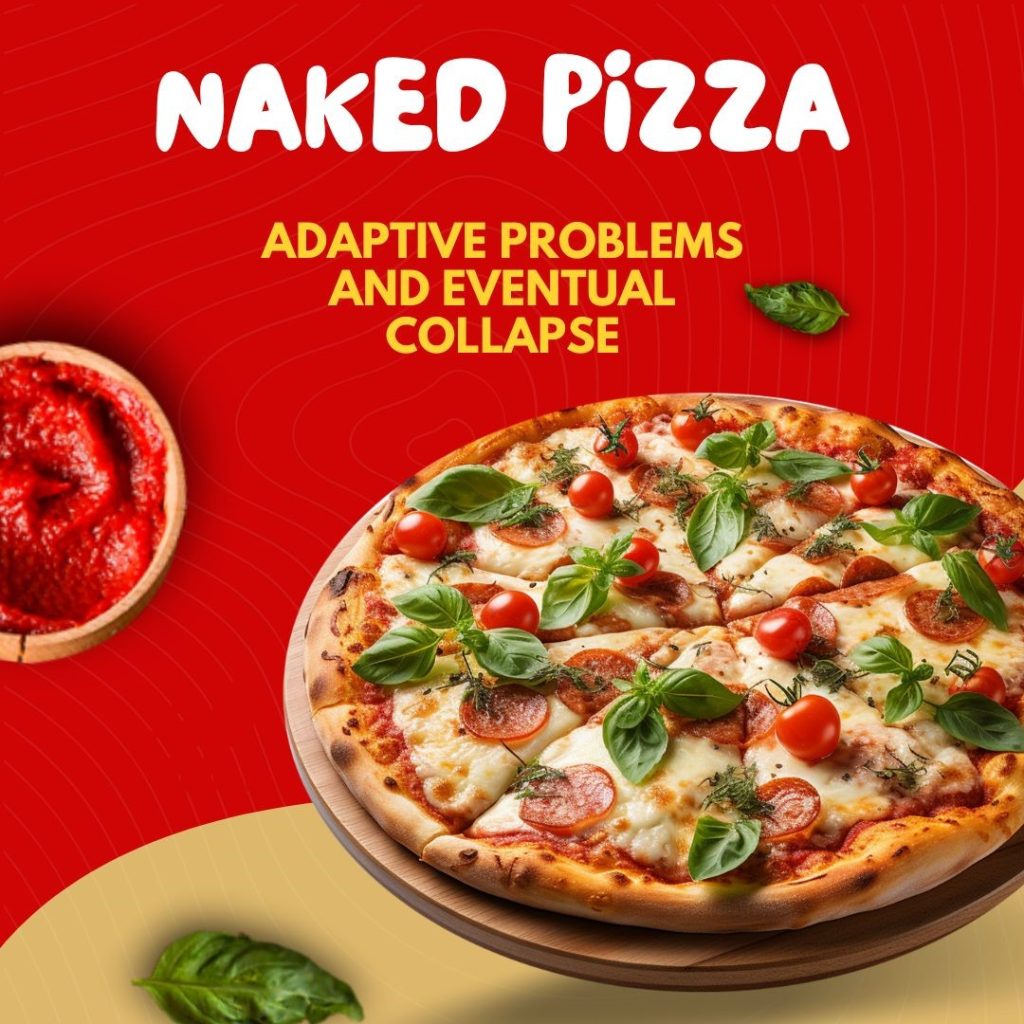Naked Pizza, a U.S.-based fast-food chain known for its focus on health-conscious, all-natural ingredients, ventured into the Nigerian market with ambitions of revolutionizing the local pizza scene. However, despite its global acclaim and innovative approach to pizza-making, the brand struggled to gain traction in Nigeria. Its failure to adapt to local tastes and the fierce competition within the country’s food industry ultimately led to its downfall. This article explores the factors that contributed to Naked Pizza’s struggles and the lessons that can be drawn from its experience.
Understanding the Brand: Naked Pizza’s Unique Selling Proposition
Naked Pizza entered the global market with a distinctive identity. Unlike traditional pizza chains, it marketed itself as a health-conscious brand, emphasizing its use of natural ingredients, no preservatives, and a dough base infused with probiotics. This approach resonated with health-conscious consumers in the Western market, where trends toward organic and clean eating were already well established.
When the brand entered Nigeria, it carried this same value proposition, believing it would attract the growing middle-class demographic interested in healthier eating options. The company also aimed to position itself as an alternative to more indulgent fast-food options by highlighting the benefits of its wholesome pizzas.
Cultural and Market Misalignment
Despite its innovative approach, Naked Pizza failed to account for significant cultural and market differences. In Nigeria, the fast-food industry is driven not only by convenience but also by bold, rich flavors that cater to local palates. Nigerian consumers are accustomed to dishes that are heavily spiced and seasoned, reflecting the country’s diverse culinary traditions. Naked Pizza’s health-focused, minimally seasoned offerings were perceived as bland and unexciting by many local customers.
Additionally, the concept of health-conscious eating, while gradually gaining traction, was not mainstream in Nigeria when Naked Pizza entered the market. The average Nigerian consumer prioritized affordability and flavor over the health benefits of a meal. Naked Pizza’s pricing strategy, which was aligned with its premium image, further alienated potential customers, as it was seen as expensive compared to local and international competitors.
Fierce Competition in the Nigerian Food Industry
The Nigerian fast-food industry is highly competitive, with numerous established local and international players vying for market share. Brands such as Domino’s Pizza, Debonairs Pizza, and Pizza Hut had already solidified their presence in the pizza segment, offering a variety of flavors and price points that appealed to a broad consumer base. Local eateries, known for their affordability and culturally tailored dishes, also posed significant competition.
Naked Pizza’s inability to differentiate itself effectively in this crowded market further contributed to its struggles. While its emphasis on health was unique, it was not enough to persuade a market that valued taste, portion size, and affordability above all else.
Operational Challenges and Limited Adaptation
Another critical factor in Naked Pizza’s challenges was its reluctance or inability to adapt its offerings to local tastes. Successful international food brands in Nigeria have often modified their menus to include flavors and ingredients familiar to Nigerian consumers. For example, Domino’s introduced “suya” (spiced grilled meat) pizza, a flavor inspired by a popular local delicacy, which became a hit among customers. Naked Pizza, however, largely retained its original recipes and flavors, which failed to resonate with the Nigerian audience.
Operational challenges also hindered the brand’s growth. The infrastructure and supply chain complexities in Nigeria, including inconsistent power supply and logistical difficulties, often create hurdles for businesses. Naked Pizza’s commitment to using natural and perishable ingredients likely added to these operational difficulties, increasing costs and reducing efficiency.
Key Lessons from Naked Pizza’s Experience
The failure of Naked Pizza in Nigeria underscores several important lessons for international brands entering culturally distinct markets:
- Thorough Market Research is Crucial: Understanding local tastes, preferences, and spending habits is essential for tailoring products to meet consumer demands. Naked Pizza’s limited adaptation highlights the importance of such research.
- Cultural Relevance Drives Success: Brands that resonate with local culture often have a competitive edge. Incorporating local flavors or developing region-specific products can help create a stronger connection with consumers.
- Affordability Matters: While premium pricing can work in certain segments, it is vital to align pricing strategies with the target market’s economic realities.
- Adaptability is Key: Flexibility in operations, marketing strategies, and menu offerings can help international brands navigate challenges in new markets.
- Competition Cannot Be Ignored: Understanding the strengths and weaknesses of existing competitors and identifying a unique value proposition are critical for differentiation.
Conclusion
Naked Pizza’s foray into Nigeria was an ambitious attempt to introduce a health-conscious fast-food concept in a rapidly growing market. However, the brand’s struggles highlight the importance of aligning product offerings with local tastes and preferences, understanding market dynamics, and addressing operational challenges. For international brands looking to succeed in culturally diverse markets like Nigeria, Naked Pizza’s experience serves as a cautionary tale about the perils of underestimating cultural and economic factors. By prioritizing adaptability and cultural relevance, businesses can position themselves for success in even the most competitive environments.

